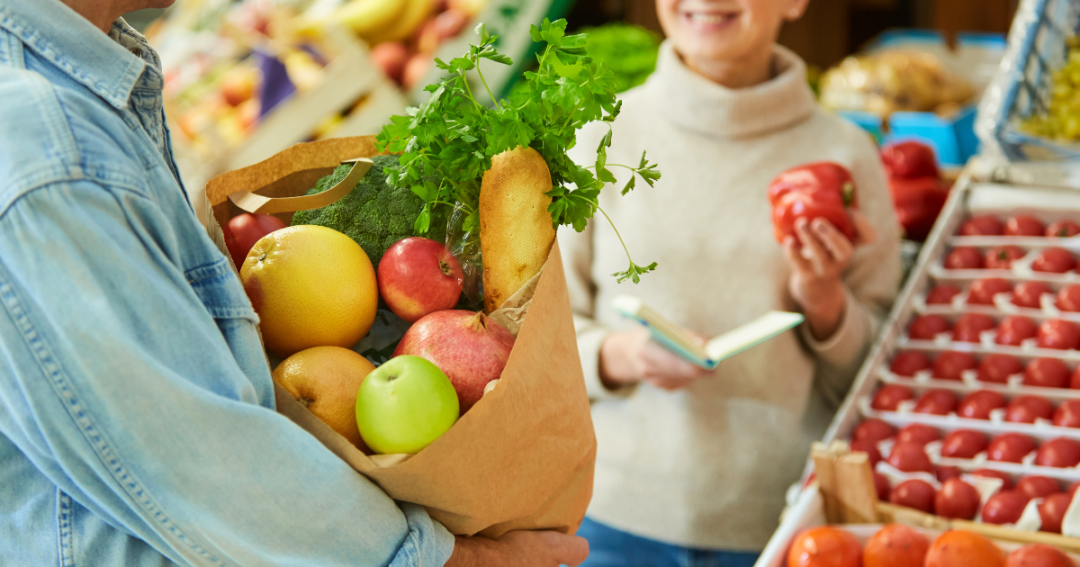Raise your hand if you’ve ever left your grocery list at home! (You can’t see me right now but my hand is up!) It’s the worst, isn’t it?
You walk in, you see those big bright lights, and all of a sudden… your mind goes blank. What were you here for again? This is a great reminder of how the “magic” of a great shopping trip begins before you hit the store. It may seem like a mindless chore, but grocery shopping is an important life skill. It plays a HUGE role in your results, your health, AND your bank account!
That’s why we’ve put together a list of 9 Pro-Level Grocery Skills to help you make the most of your shopping trips.
1. Plan first, then make your list
Before you head to the store, scan your kitchen for what you have on hand. Make a meal plan for the week, using up any food that is about to expire. Then, make your grocery list, listing “like” items together for easier shopping.
2. Shop the perimeter – but make produce your last stop
Hit the frozen foods, dairy, and meat sections before you add the most fragile products to your chart – fresh fruits, veggies, and eggs.
3. Go seasonal + local
Choose fruits and veggies that are in season and are locally sourced – they usually are fresher and tastier. Plus, you’ll be supporting local farms.
4. Buy in bulk (but only if it makes sense)
For non-perishable items you buy a lot (like oatmeal or rice), buying in bulk can save you money. But if it’s something you don’t use often, it may expire before you have a chance to use it.
5. If your grocery store has an app, download it
Snag some great coupons based on your shopping history and store maps to help you find items.
6. Try store brands & shop sales
Store brands are usually the same quality as name brands but less expensive. When it comes to sales, being flexible is the key – but like bulk items, don’t buy unless it’s something you’re going to use.
7. Read food labels
Most of the items in your cart may not have a label because real “whole” foods don’t need them. For the ones that do? Read your labels.
8. Unit pricing
Smart shoppers compare the unit price (e.g., per ounce or liter) of different items instead of the price per container. Sometimes those bigger boxes aren’t the deal they appear to be!
9. Know the staff
Get to know the store’s fishmonger, butcher, and produce manager. They can steer you to great deals on the freshest food or suggest new items to try.
🎁 And here’s a bonus tip: be flexible and prepared to “pivot” your meal plan (and grocery list) based on in-store deals or what the store has on the shelves. Because… sometimes the store will surprise you with a sale on Bing cherries or wild-caught sockeye salmon… and you just HAVE to have it!
So, the next time you’re gearing up for a trip to the grocery store, remember these pro-level tips. They’ll not only save you time and money but also make your shopping experience much more enjoyable and fruitful. Happy shopping!

